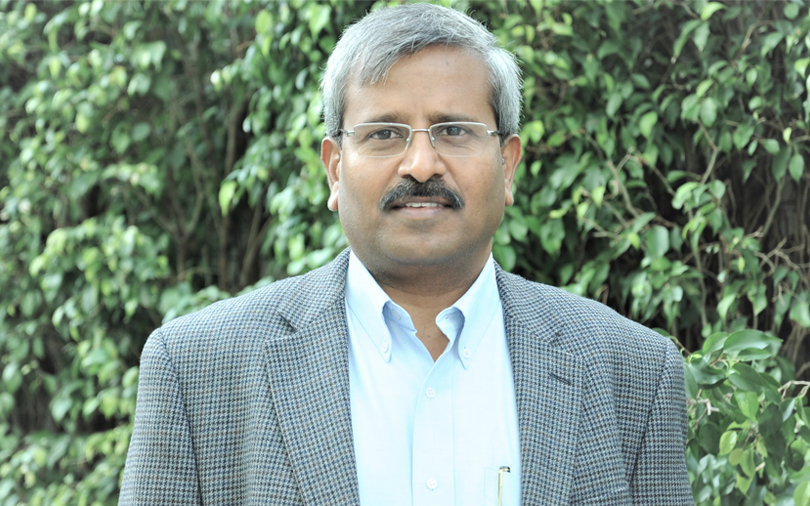
Dell EMC's share rising in India's server, storage market: R&D head Basavarajappa


India has always been a key country unit for US-based tech giant Dell EMC. The research and development centre in the country has been gaining prominence in the global scheme of things for the data storage firm. When Dell bought tech major EMC Corporation three years ago, it was the largest deal in tech history.
Rudramuni Basavarajappa is the vice president and head for Dell EMC’s R&D centre in India. He had previously worked for Tata Unisys in Bengaluru and the US. The Harvard Business School alumnus also co-founded an e-commerce startup, SpinCircuit, which was acquired by US-based multinational corporation Cadence in 2003.
In an interview with TechCircle, Basavarajappa explains the significance of the India centre, how it contributes to the overall vision of the group and much more. Edited excerpts:

Could you give us a brief outline of Dell EMC’s India R&D centre, its scope, size and role in the overall product development strategy?
Cumulatively, Dell Technologies has invested more than $12.7 billion in R&D over the past three years. Our support and deployment services division, consulting arm and teams from India help local as well as global customers to architect their digital transformation journey.
We globally launched the 14th generation PowerEdge server portfolio last year. The India R&D team contributes to 60% of the overall server systems management software. The 14th generation servers are based on three key engineering tenets—scalability, intelligent automation and integrated security.

Right from the 6th generation PowerEdge servers, launched way back in 2001, till the 14th generation ones, the collaboration and innovation of technologists in Bengaluru with the R&D teams across the globe have significantly risen from a few programmes involving some aspects to over 25 programmes involving all aspects of the server today.
The maturity of the Bengaluru centre has grown in stature with the team taking full ownership and accountability. It is now in a position to influence product roadmaps for server software products that are part of the 14th generation servers. To ensure a smooth rollout of the new servers, a number of process innovations and new learnings also had to be implemented, ranging from reworking the hardware material to the software development processes. Many of these have now become best practices.
How has the India centre's role changed over the years?

A governance process has been formed to track and monitor the progress of the various ideas generated within the company and to implement them. The R&D ecosystem in India has matured with the availability of highly skilled talent, customer-led innovation and product engineering. The India R&D team now contributes towards a full cycle of innovation on Dell’s enterprise future-ready solutions, which include storage, server and networking. The importance of the India centre has grown multi-fold with respect to talent. Two distinct career ladders have been established – a technology one for engineers to pursue technical aspirations as individual contributors and management opportunities for those pursuing managerial aspirations.
How has the EMC merger impacted the organisation, especially with regard to R&D efforts?
The merger augurs well for our customers and partners, combining a supply chain at scale with a go-to-market strength that consolidates our position in new and existing areas of technology.

With a wide range of solution offerings and the essential infrastructure for business transformation that fosters innovation, the new entity helps customers of all sizes win in the digital world. As Indian customers look to transform their IT to cater to the new demands of the digital age, the Dell family of businesses is uniquely positioned to address their needs.
Dell EMC and strategically aligned businesses have positioned Dell as the number one in several business segments such as server, storage, human-computer interaction, etc. With the position of strength, a lot of engineering capabilities and best practices are being leveraged to architect better solutions for our customers. Being under one umbrella, technology advantages are unparalleled.
Is the India centre involved in end-to-end product development? What would those products be?

The India centre is involved in all aspects of the product development lifecycle starting from architecture, design, development, test, sustain, etc. It is involved in all our enterprise products. Systems management software in the server, enterprise OS/hypervisors, server storage products, technology behind services and support offerings, etc. are some products where the India team has made huge contributions. It collaborates very efficiently with other global centres to deliver value to our customers.
How many patents were filed by the employees of the India R&D centre over the last few years? How does this compare with other centres across the globe?
The R&D has created an environment and culture for engineers to innovate and file patents. The India centre has filed over 500 patents, which is very high compared to other centres. Also, the centre encourages engineers to contribute to relevant open source projects.

Dell EMC has emerged as the top leader in the server market for the first quarter globally, as per market intelligence firm IDC. Where does it stand in India and what was the local centre’s contribution to this achievement?
It was a great 2017 for us. Fuelled by strategic cross-selling and robust business wins, in Q3 we recorded four times the market growth in India. According to the worldwide server market report, we lead the global server market both by revenue and units in the same category. Our Indian server market share increased to 19.4% in Q4 2017 in the x86 server market. We lead the storage market by 26.1% in terms of vendor revenue. Our overall India traditional PC shipments for Q4 2017 stood at 2.6 million units with a year-on-year growth of 35.2% over Q4 2016. Also, we took the second spot, with a 22.4% share in the overall India traditional PC market for the calendar year 2017.
